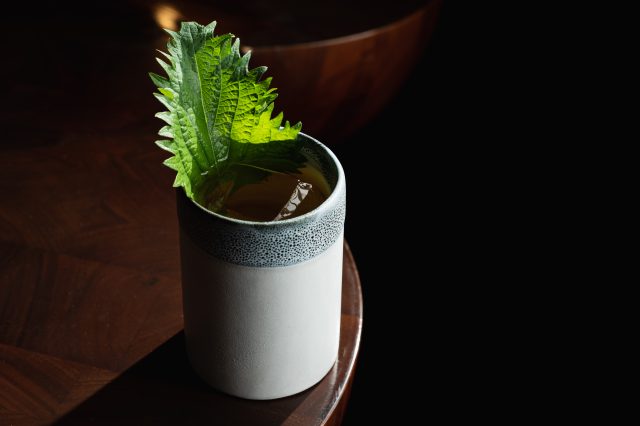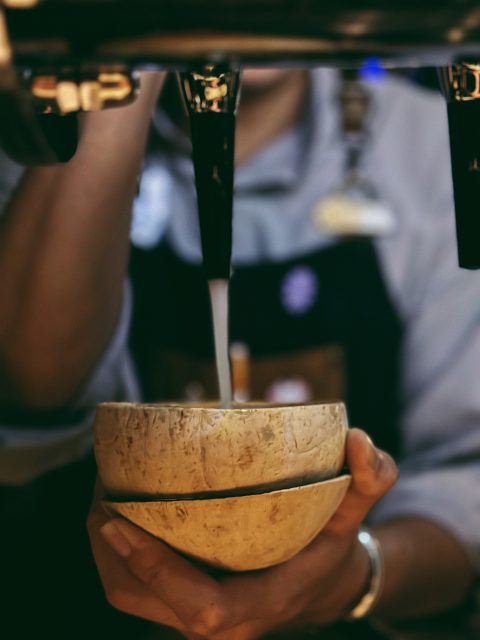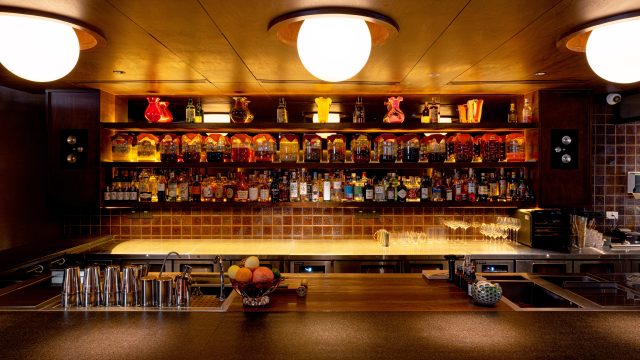This website uses cookies so that we can provide you with the best user experience possible. Cookie information is stored in your browser and performs functions such as recognising you when you return to our website and helping our team to understand which sections of the website you find most interesting and useful.
How Southeast Asia’s mixology scene is setting the sustainability bar
The fast-developing region represents the front line of the fight for sustainability. Dan Q Dao speaks to bar professionals in Ho Chi Minh City, Bangkok, Kuala Lumpur, and Phnom Penh to find out how they’re going greener.

In recent years, a global push towards sustainability has driven innovation in the bar world, with eco-conscious bar owners and bartenders finding new ways to source ingredients, maximize efficiency, and upcycle waste. And in Southeast Asia, a fast-developing region on the frontlines of sustainability, bars aren’t just following trends — they’re leading their communities by example.
This hasn’t always been easy. In Southeast Asia, the infrastructure surrounding environmentalism — sometimes even basic recycling — is fairly new and still growing. It’s worth noting, according to a recent Earth Day report, that this region alone accounts for more than half of the world’s oceanic plastic waste. And so while a single cocktail bar can’t solve all these problems, a spirited effort across borders may offer big-picture solutions for local industries to follow.
From working collaboratively with local farms to closed-loop cocktails crowned with recycled garnishes, we caught up with the folks at Bangkok’s F*nkytown, Phnom Penh’s Sora Bar at the Rosewood Hotel, Kuala Lumpur’s Bar Trigona at the Four Seasons, and Ho Chi Minh City’s Summer Experiment to get a better sense of how Southeast Asian cocktail bars are leading the charge for bettering the planet.
Sourcing ingredients locally
As with restaurants, cocktail bars are increasingly seeking out local, seasonal ingredients, which often not only yields better tasting drinks but also requires finding and supporting small producers who are growing responsibly. This farm-to-bar ethos can be found at Summer Experiment in Ho Chi Minh City, also called Saigon, which sources most of its produce — even a specialty of ant salt (made with real ants) — from local producers and its on-site garden.
For bartender-owner Jay Moir, tapping into the natural bounty of the region was a no-brainer: “We’re very lucky with the climate in Vietnam. We have so many tropical fruits, herbs, and spices to play with. I love my botanicals, so my cocktails use the freshest ingredients possible.”
In Malaysia, Kuala Lumpur’s Bar Trigona at the Four Seasons has emerged as a leader in sustainability, part of which is owed to thoughtful sourcing in partnership with local farms as well as the acquisition of its own farmland. The bar has notably released menus built specifically around indigenous and sustainable ingredients. Currently on the menu are drinks made with rose apples, torch gingers, and strawberries from partner farms, as well as cacao nibs grown on the Trigona farm.

“Our menu is dictated by what is currently in season and being grown at our partner farms,” says Rohan Matmary, head bartender and beverage manager. “If an ingredient is no longer available, we take the corresponding cocktail off the menu.”
Closing the loop on waste
While sourcing ingredients is the first step, closing the loop — that is to say, minimising waste by upcycling — on them is the part that requires the most creativity. But according to Bob Louison, director of bars at the Rosewood Phnom Penh, finding ways to use ingredients offers new options for taste and flavour. At the hotel, Louison and his team are currently experimenting with new ways to utilise ingredients not only from the bar, but also from the property’s various restaurants. They plan to unveil a new cocktail menu this autumn that incorporates even more sustainable practices.
“I’m looking forward to creating different kombuchas using ingredients that are upcycled from the property’s dining establishments and serving them through various touch points in the hotel,” Lousion says of future projects at Sora Bar. “We can even develop house-made beer from leftover bread. The possibilities are endless, and our team is eager to learn.”
Across the bar world, citrus in particular is a key source of waste, due to the amount of peels and shells left over from juicing. At Bangkok’s newly-opened F*nkytown, head bartender Pae Ketumarn created a solution to handle the abundance of used citrus shells to make the bar’s house kombucha.
“Instead of throwing [the shells] away, we give them a second life by extracting the remaining essence in the peels in water that has been adjusted with acid, sugar, and the peels to make them into a cordial that we use in our lemonade in our sister company Sarnies’ Café’s tonic drink.”

At Summer Experiment, Moir applies a similar “whole ingredient” ethos to the coconut: the bar’s signature Coco Negroni is made by slow-dripping the cocktail through a heart of palm “filter” found in the core of a coconut tree. While this alone imparts flavor to the cocktail, Moir takes it a step further by turning the used heart of palm into a garnish.
“Instead of throwing that product away, we actually dehydrate it and create a chip garnish,” he explains. “Our Coco Negroni has a gin base and a bit of coconut oil — and is served in the reused coconut shell. We’re trying to use all elements of the coconut and coconut tree. It’s zero waste.”
Thinking outside the bar
Of course, excess plastic and glass are also considerations for bars wishing to become more sustainable. Bar Trigona has eliminated most of its plastic use altogether. Matmary explains: “We focus heavily on waste reduction by using reusable crates for all our produce instead of plastic bags or cling wrap, almost eliminating all plastic waste. All of our glassware and bottles are recycled.”
Moir, meanwhile, engages the local community by reaching out to recycling programmes to send the bar’s cardboards, cans, and bottles. And at Summer Experiment, he encourages his team to have fun with sustainability — even reusing broken glasses from accidental mishaps.
“If a glass is smashed or something like that, a lot of bars would throw that glass away,” Moir says. “But we try to be a little bit more quirky. Our team plants little seedlings into glasses and you could see them scattered around in the bar or in our little hanging garden. We’re trying to use every item we have within the bar without adding more waste.”

So what challenges are bartenders left to face? Ketumarn notes that, while there is a greater awareness among local bartenders to be sustainable, the big challenge ahead for Southeast Asian bars is finding ways to scale individual sustainable practices up to the business level.
“We have evolved the mindset of being responsible for the amount of waste we produce from something as small as creating one drink, to building a concept,” he says. “Thailand is still in the early stage of creativity in what ways we can be ‘sustainable’ in our practices. We see it on a smaller scale that bartenders are trying to come up with closed-loop cocktails with recycled garnishes, but the bigger picture can be how the same mindset can be applied to the business scale.”
Related news
Charity Commission report slams Captain Tom gin
Hennessy staff on strike over China bottling plans
Should Japanese whisky distilleries be tapping into tourism?

